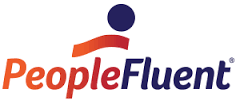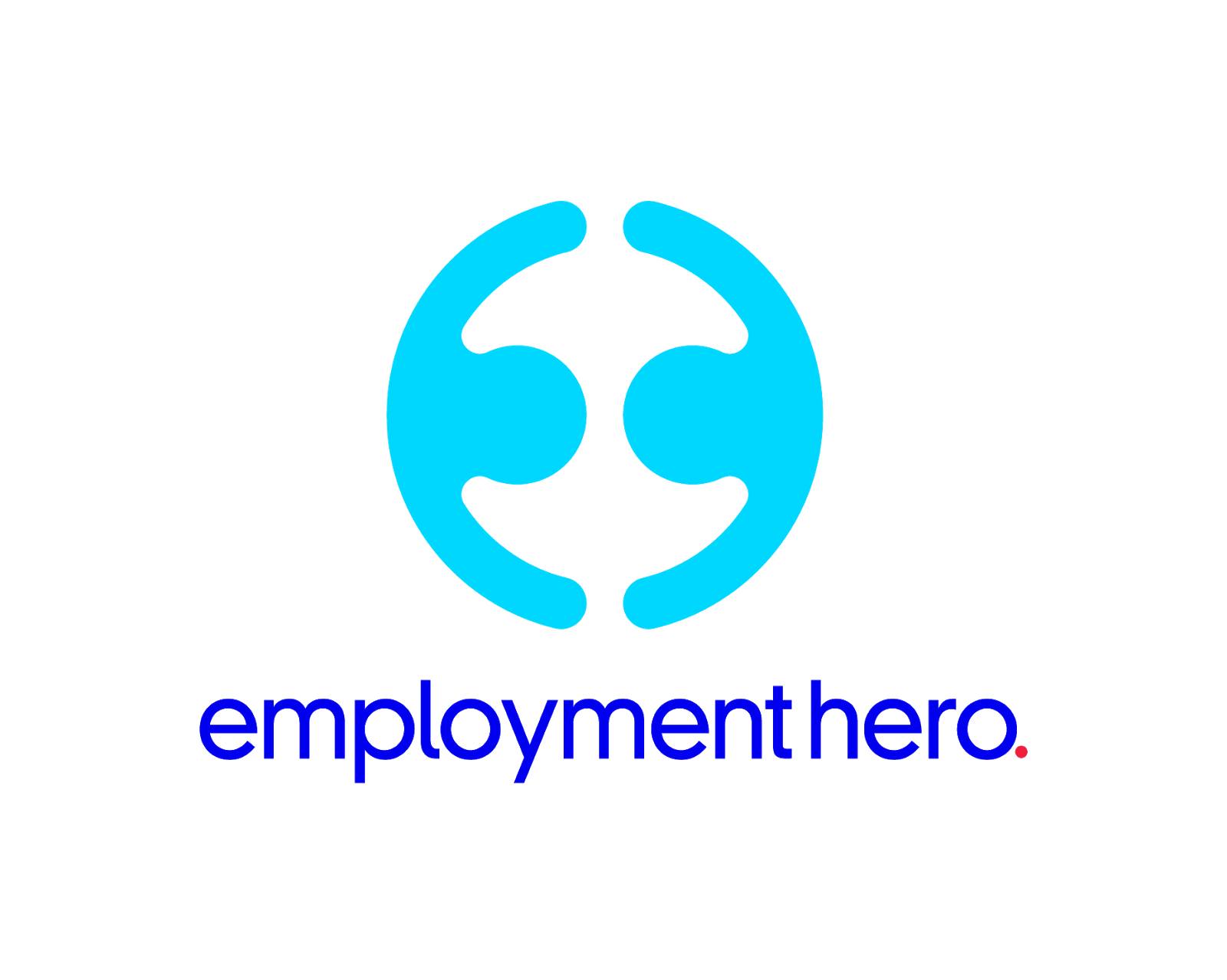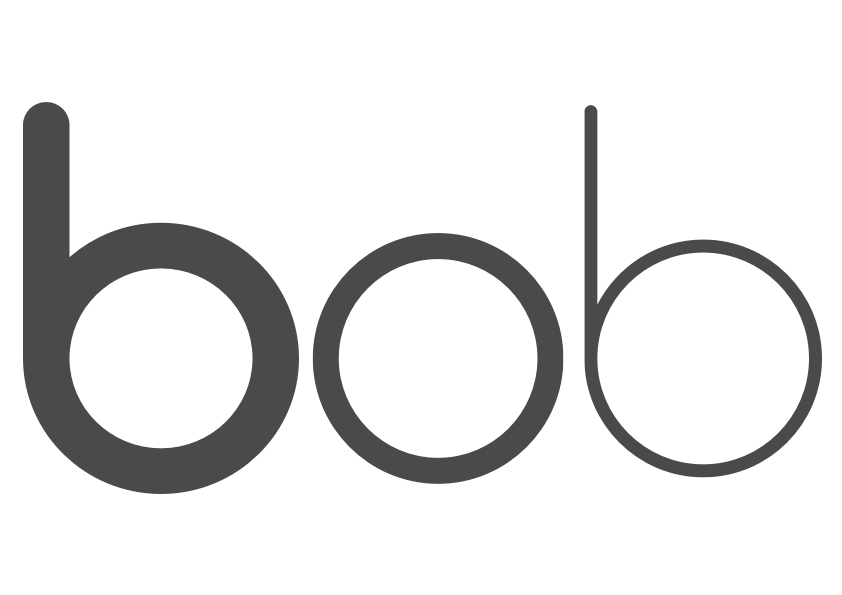Top Performance Management Softwares Softwares
Performance Management software plays a crucial role in optimizing employee performance and business outcomes. This software provides tools for setting objectives, tracking progress, and evaluating results, aligning workforce efforts with organizational goals. By offering real-time feedback, it fosters a culture of continuous improvement and accountability. Key features often include goal setting,... Read More
283 companies found
Product Description
Insperity is a software that aims to make managing your business tasks simpler and more efficient. It’s particularly useful for those involved in human resources, offering a streamlined way to handle everything from payroll to employee benefits. One of the standout features is its ease of use. The platform is designed to be intuitive, allowing you to get started quickly without needing extensive t... Read More
Users
- • No Data
Industries
- • No Data
Market Segment
- • No Data
Product Description
Paycor is designed to simplify the day-to-day tasks associated with managing your workforce. Whether you're handling payroll, human resources (HR), or time tracking, this software aims to integrate and streamline these processes. Essentially, it helps you take care of the logistical side of running a business, so you can focus more on the big picture. When it comes to payroll, Paycor ensures that... Read More
Users
- • No Data
Industries
- • No Data
Market Segment
- • No Data
Product Description
isolved is a human capital management (HCM) software that's designed to make managing your workforce simpler and more efficient. If your business needs a streamlined approach to handle everything from payroll and benefits to time tracking and employee engagement, isolved can help. The software offers an all-in-one platform where you can find various tools to manage your employees' life cycle fro... Read More
Users
- • No Data
Industries
- • No Data
Market Segment
- • No Data
PeopleFluent
Product Description
PeopleFluent is an integrated software designed to help businesses streamline their human resources processes. As a cloud-based solution, it allows companies to manage various aspects of employee acquisition, development, and retention all in one place. PeopleFluent is tailored to meet the needs of medium and large enterprises, ensuring they can effectively manage their talent. The software provi... Read More
Users
- • No Data
Industries
- • No Data
Market Segment
- • No Data
Product Description
BambooHR is designed to make managing your company's Human Resources (HR) processes easier and more efficient. It offers a user-friendly platform that helps businesses, especially small to mid-sized ones, with everything from tracking employee information to automating key HR tasks. Think of BambooHR as a helping hand for your HR team, allowing them to focus more on people and less on paperwork. ... Read More
Users
- • No Data
Industries
- • No Data
Market Segment
- • No Data
Employment Hero
Product Description
Employment Hero is a versatile software platform designed to streamline and enhance the human resources (HR) processes for businesses of all sizes. It brings together essential HR tasks into one easy-to-use system, making it simpler for companies to manage employee benefits, payroll, recruitment, and performance. One of the main features of Employment Hero is its comprehensive payroll management ... Read More
Users
- • No Data
Industries
- • No Data
Market Segment
- • No Data
Culture Amp
Product Description
Culture Amp is a software platform designed to help companies improve their workplace culture, employee engagement, and overall performance. Drawing insights from employee feedback, Culture Amp provides actionable recommendations to create a better work environment. It's widely used by HR professionals and managers to gather, analyze, and act upon data regarding employee experiences. This platfor... Read More
Users
- • No Data
Industries
- • No Data
Market Segment
- • No Data
Product Description
Hibob is a people management platform designed to transform the way modern organizations handle HR tasks. Think of it as a smart, easy-to-use tool that helps companies take better care of their employees. From hiring to onboarding, employee engagement to performance management, Hibob covers all the bases to ensure your HR processes run smoothly. What's unique about Hibob is its user-friendly appr... Read More
Users
- • No Data
Industries
- • No Data
Market Segment
- • No Data
The Predictive Index
Product Description
The Predictive Index is a software tool designed to help businesses understand the people they hire, work with, and manage. At its core, the software provides insights into what motivates individuals, their behavioral tendencies, and how they fit into various roles within an organization. Imagine having a clear picture of what drives your employees. The Predictive Index offers this clarity, allo... Read More
Users
- • No Data
Industries
- • No Data
Market Segment
- • No Data
Product Description
Dayforce is a comprehensive human capital management (HCM) software designed to simplify and streamline the way businesses handle HR tasks and workforce management. Developed by Ceridian, this cloud-based solution aims to make everyday operations for HR professionals smoother and more efficient. Whether you're dealing with payroll, benefits, talent management, or workforce planning, Dayforce helps... Read More
Users
- • No Data
Industries
- • No Data
Market Segment
- • No Data
What are the key features of Performance Management software?
Performance Management software is pivotal in enhancing employee productivity and ensuring alignment with organizational goals. Below are the key features of Performance Management software that enable organizations to streamline processes and monitor performance effectively:
Goal Setting and Tracking
Performance Management software aids in the establishment of clear, measurable goals. It allows both managers and employees to set objectives aligned with the company's strategic vision. The software enables continuous tracking and updating of these goals, ensuring transparency and focus.
Continuous Feedback and Appraisals
Frequent feedback is vital for employee growth. Performance Management software facilitates ongoing feedback and formal appraisal processes. By enabling real-time feedback, it helps create a culture of open communication, allowing employees to understand strengths and areas for improvement regularly.
Performance Reviews and Evaluations
These systems offer customizable templates for conducting performance reviews. By automating the evaluation process, they ensure consistency and fairness, reducing potential biases. Reviews can be conducted annually, biannually, or on demand, depending on the organization's needs.
360-Degree Feedback
A holistic view of an employee's performance is crucial for comprehensive evaluations. Performance Management software often includes 360-degree feedback mechanisms, gathering input from various sources like peers, subordinates, and supervisors, promoting balanced assessments.
Development Plans and Skill Assessment
Identification of skill gaps and personalized development plans are vital for individual growth. Performance Management software provides tools for competency assessments and crafting development plans. It encourages continuous learning and skill enhancement through targeted training programs.
Analytics and Reporting
Robust analytics tools within Performance Management software provide insights into employee performance trends and organizational productivity. Customizable reports help in informed decision-making by managers, giving a clear picture of performance metrics and improvement areas.
Integration with Other Systems
To ensure seamless operations, Performance Management software often integrates with other business systems like HR, payroll, and learning management systems. This feature eliminates data silos, ensuring a unified approach to managing human resources.
Self-Service Portals
Empowering employees is a significant aspect of performance management. Self-service portals allow employees to view feedback, track progress on goals, and participate actively in their professional growth, fostering accountability and ownership.
Alignment with Organizational Objectives
Aligning individual performance with organizational goals is critical for a cohesive work environment. Performance Management software helps ensure that every employee's efforts contribute towards the bigger picture by aligning their roles with the company's strategic objectives.
Flexible Review Structures
Every organization has unique performance review needs. Performance Management software supports various review structures, be it goal-based, competency-based, or project-based reviews, offering flexibility to cater to different organizational cultures and requirements.
Recognition and Rewards System
Motivation and engagement are driven by recognizing achievements. Performance Management software often incorporates systems for recognizing and rewarding outstanding performances, reinforcing positive behavior and boosting morale.
By providing these vital features, Performance Management software supports a structured approach to managing and enhancing employee performance, benefiting both the organization and its workforce in meeting their respective objectives.
How does Performance Management Software Improve Employee Productivity?
Real-Time Feedback
Performance Management software enables continuous, real-time feedback, which allows employees to understand their performance consistently. Receiving immediate feedback can help employees adjust their methods, align with company goals, and improve performance. This continuous communication fosters a culture of transparency and can quickly address areas needing improvement.
Goal Alignment
By using Performance Management software, organizations can ensure that employee objectives align with business goals. This alignment helps employees understand how their individual roles contribute to the bigger picture, motivating them to achieve set targets. Clear goals can improve focus and drive, resulting in increased productivity.
Streamlined Communication
Performance Management software also facilitates streamlined communication between managers and employees. Open channels of communication ensure that employees have the necessary support and resources to perform better. Managers can quickly address concerns or barriers affecting productivity, maintaining a supportive work environment.
Data-Driven Decisions
With Performance Management software, businesses can gather data-driven insights regarding employee performance. Managers can identify patterns, track progress, and optimize workforce management. By leveraging this data, organizations can make informed decisions to enhance productivity across teams.
Enhanced Engagement
Engagement is key to productivity, and Performance Management software helps in boosting employee engagement. The software provides mechanisms for employees to feel more connected and valued. Engaged employees are more committed and motivated, often willing to go above and beyond, thus enhancing performance and productivity.
Development and Training
Performance Management software helps identify skill gaps and training needs, allowing organizations to foster targeted employee development programs. This personalized approach to development can improve employee competencies, empowering them to perform better, leading to greater productivity.
Automated Processes
Performance Management software automates several human resource tasks like evaluations and progress tracking. By automating these processes, employees have more time to focus on core activities, thereby enhancing efficiency and output. The reduction of manual tasks also minimizes errors and delays.
Recognition and Rewards
Recognizing and rewarding high performance is crucial for sustaining productivity. Performance Management software often includes functionalities to track achievements and distribute rewards. Acknowledgment of hard work reinforces positive behavior and encourages continuous high performance.
Performance Metrics Visibility
The visibility of performance metrics through Performance Management software promotes accountability among employees. When individuals have access to their performance data, they are better equipped to self-manage and strive for improvement. This awareness directly contributes to iterative productivity improvements.
Role Clarity and Expectations
Clear expectations and role definitions provided by the software help in eliminating confusion around responsibilities. When employees know exactly what is expected, they can focus their efforts more effectively, resulting in improved outcomes and productivity.
By incorporating these aspects, Performance Management software plays an integral role in enhancing employee productivity, aligning personal objectives with organizational goals, and fostering an engaged and motivated workforce.
What should you look for when choosing Performance Management software for your business?
When selecting Performance Management software for your business, several critical factors come into play. This ensures the software aligns well with your organizational goals and workflows.
Ease of Use
Choose software that offers an intuitive interface and user-friendly features. This ensures adoption across all levels of your organization without extensive training.
Integration Capabilities
Performance Management software should easily integrate with your existing systems, like HR management systems, payroll, and communication platforms. This streamlines processes and centralizes data handling.
Customization and Flexibility
Opt for software that allows customization to fit your business needs. It should accommodate changes and the unique requirements of your industry, allowing adjustments as your business evolves.
Scalability
The software should grow with your company. As your team expands, the system should handle increased users and added functionalities without significant additional investment.
Goal Setting and Tracking
Effective Performance Management software includes robust tools for setting, monitoring, and evaluating goals. It should facilitate clear goal alignment between employee performance and organizational objectives.
Real-time Feedback and Continuous Communication
Look for software that enables continuous feedback and open communication channels. These programs encourage regular manager-employee interactions and enhance performance improvement.
Analytics and Reporting
The ability to analyze performance data with detailed analytics and reporting tools is crucial. This helps in identifying trends, making informed decisions, and shaping future strategies.
Security and Compliance
Ensure the software adheres to industry security standards and compliance regulations. Protecting sensitive employee data is a top priority for any performance management system.
Support and Resources
Select a provider that offers comprehensive support and ample resources like documentation, tutorials, and customer service. This ensures proper guidance for troubleshooting and optimizing software use.
Mobile Accessibility
In today’s flexible work environments, mobile accessibility is vital. Software should support multiple devices, allowing access and management of performance-related tasks on the go.
Cost-Effectiveness
Evaluate the total cost of ownership, including subscription fees, implementation, and maintenance. Choose software that provides good value for money while meeting all business requirements.
Employee Engagement Tools
Software should include features that engage employees through recognition programs, development initiatives, and collaborative opportunities.
Feedback Mechanisms
Mechanisms for soliciting and giving feedback, like surveys and reviews, should be a part of the software. These tools foster a culture of continuous improvement.
User Community and Forums
Access to a user community or forum where users share experiences and tips is helpful.
By focusing on these considerations, businesses can select Performance Management software that effectively supports their goals and enhances overall productivity.
How can Performance Management software support remote teams?
Facilitates Clear Communication
Performance Management software can bridge the communication gap that often arises in remote work settings. It allows managers and team members to set clear objectives and expectations through defined goals and tasks. With built-in tools for messaging and feedback, these platforms enable real-time interactions, ensuring that every team member remains aligned.
Enhances Goal Alignment
Achieving cohesiveness in remote teams can be challenging. Performance Management software ensures that individual goals align with organizational objectives, thus maintaining consistency across different locations. This software provides processes for setting, tracking, and reviewing goals, ensuring each team member understands their role in the larger picture.
Encourages Continuous Feedback
One of the most impactful elements of remote team management is maintaining continuous feedback. Performance Management software supports this by offering tools for ongoing reviews and assessments. Such platforms record feedback and performance data, which managers and peers can use to provide insightful and constructive input.
Supports Training and Development
Remote teams benefit from frequent skill enhancement but often lack the resources of an in-office setup. Performance Management software includes various tools for tracking employee progress and identifying areas for improvement. This software can suggest training programs, provide resources, and track learning outcomes, ensuring remote employees continue to grow professionally.
Increases Accountability
Working remotely can sometimes lead to miscommunication and oversight. Performance Management software holds team members accountable through transparent tracking systems that monitor task progress and completion. Employees know precisely what expectations they need to meet, which fosters a sense of responsibility and ownership.
Promotes Efficiency
Efficient task handling is essential for remote work success. The structured task management features within Performance Management software allow remote teams to manage time efficiently. These platforms provide an organized framework for task delegation, timeline setting, and milestone tracking, which helps in organizing tasks effectively and allows teams to function smoothly.
Provides Data-Driven Insights
Performance Management software collects and analyzes data on employee performance, providing managers with actionable insights. This data-driven approach helps in identifying high-performing employees, areas needing attention, and overall trends. It allows for informed decision-making that optimizes team performance within a remote setting.
Facilitates Performance Reviews
Performance appraisals must remain regular, even for remote teams. Performance Management software eases this process by organizing performance data, generating reports, and setting up review cycles. Regular reviews ensure that employees are recognized for their achievements and receive constructive feedback to improve.
Cultivates a Collaborative Environment
Remote teams can sometimes feel isolated. Performance Management software fosters collaboration by offering platforms for discussions, brainstorming, and teamwork. These features allow employees to work together towards common goals, despite physical distances, enhancing team spirit and cooperation.
In summary, Performance Management software strengthens remote teams by building communication channels, promoting goal alignment, and creating transparent expectations. Through continuous feedback, training opportunities, and efficiency tools, it ensures that remote teams operate successfully and cohesively.
What are the benefits of using Performance Management software for managers?
Enhanced Goal Alignment
Performance Management software facilitates better alignment of team and organizational goals. Managers can set clear objectives and key performance indicators (KPIs) that align with business strategies. This ensures that employees understand their contributions to overall success, enhancing motivation and productivity.
Streamlined Performance Tracking
By utilizing Performance Management software, managers gain access to integrated performance tracking tools. This software provides real-time data and analytics, enabling continuous monitoring of employee performance. Managers can identify patterns, track progress, and make informed decisions to support team members in reaching their potential.
Improved Feedback and Communication
Effective communication is vital for managing performance. Performance Management software offers streamlined channels for providing feedback. Managers can deliver constructive insights regularly, fostering an environment of open dialogue. This technology enhances the frequency and quality of interactions, leading to improved collaboration and understanding between managers and their teams.
Increased Employee Engagement
Performance Management software can significantly boost employee engagement. By setting transparent performance metrics and offering consistent feedback, employees feel more valued and understood. This increased engagement often results in higher morale and productivity, as employees are more invested in their roles and contributions to the team.
Simplified Learning and Development
Managers benefit from using Performance Management software as it simplifies the identification of skill gaps and development needs. With built-in tools for tracking and analyzing performance data, managers can better understand where training or development programs are needed. This targeted approach to learning and development helps in building a more competent and skilled workforce.
Objective Performance Reviews
Performance reviews are integral to organizational growth, yet they often suffer from subjectivity and bias. Performance Management software provides managers with data-driven insights, ensuring objective and fair assessments. This reduces bias and enhances the credibility of reviews, helping in establishing trust and fairness in performance evaluations.
Customizable Reports and Analytics
Managers can leverage customizable reports and analytics offered by Performance Management software to gain a deeper understanding of team dynamics. These tools provide insights into various performance metrics, enabling managers to tailor their strategies to meet specific objectives. This adaptability is key to managing diverse teams effectively.
Time Efficiency
Time is a critical resource for managers, and Performance Management software can significantly increase time efficiency. By automating numerous aspects of performance management, such as scheduling reviews and tracking objectives, managers can focus on strategic decision-making. This reduction in administrative tasks frees up time for more meaningful interactions with team members.
Compliance and Record-Keeping
Ensuring compliance with organizational policies and standards is another benefit of Performance Management software. This software provides a centralized system for record-keeping, making it easier for managers to maintain accurate records of performance discussions, evaluations, and development plans. This aids in transparent reporting, compliance audits, and maintaining consistency across the organization.
How does Performance Management software help in setting and tracking goals?
Performance Management software is a crucial tool for organizations aiming to optimize employee performance and align individual goals with broader company objectives. This software provides structured processes and insights, ensuring systematic goal management and continuous improvement across the workforce.
Facilitating Goal Setting
Performance Management software aids in the creation and documentation of both individual and team objectives. It enables managers and employees to collaboratively establish clear, specific, and achievable goals. By providing templates and frameworks, the software ensures that goals are S.M.A.R.T. (Specific, Measurable, Achievable, Relevant, Time-bound). This clarity helps in aligning personal career objectives with the strategic vision of the organization.
Goal Alignment
One of the notable features of Performance Management software is its ability to align individual goals with overarching business goals. This alignment is critical for ensuring that every employee's efforts contribute to strategic company outcomes. The software facilitates transparency in how individual goals map to team and organizational objectives, which fosters a unified direction and sense of purpose among employees.
Tracking Progress
To track progress effectively, Performance Management software offers tools for ongoing monitoring and evaluation of goals. Users can continuously update their progress, which provides visibility into accomplishments and areas needing improvement. Automated reminders and notifications help ensure that stakeholders are consistently aware of deadlines and milestones, reducing the likelihood of missed targets.
Performance Metrics and Feedback
The use of performance metrics within the software assists in evaluating progress quantitatively. With built-in analytics and reporting features, managers can assess individual and team performance against established goals. This objective data serves as a foundation for meaningful feedback, crucial for personal and professional growth. The feedback loop is made more efficient and impactful, as it is directly tied to observed metrics and outcomes.
Real-Time Adjustments
Performance Management software supports dynamic goal management, allowing for real-time adjustments based on changing circumstances. Whether an individual is over-performing or facing unexpected challenges, goals can be modified to reflect new priorities or realities. This flexibility not only ensures relevancy but also keeps employees motivated and focused.
Encouraging Continuous Development
Another significant benefit offered by Performance Management software is the encouragement of a culture of continuous development. By emphasizing regular check-ins and performance reviews, the software supports ongoing dialogue between managers and employees. This continuous interaction helps in identifying skill gaps, celebrating success, and setting development paths tailored to individual aspirations.
Enhancing Accountability
The transparency provided by Performance Management software inherently enhances accountability. With clearly defined goals and visible progress, employees understand their responsibilities and the expectations placed upon them. The software’s tracking and reporting features provide a clear audit trail, which holds both employees and managers accountable for their contributions to achieving company objectives.
In summary, Performance Management software plays a pivotal role in setting and tracking goals by facilitating structured goal setting, enabling alignment, providing tools for progress measurement, and fostering an environment of continuous feedback and adjustment. Through these capabilities, organizations can ensure that their workforce is effectively contributing to collective success.
What types of reports can be generated from Performance Management software?
Performance Evaluation Reports
Performance Management software enables the generation of performance evaluation reports. These reports assess individual employee performance against established goals and competencies. Managers can view ratings, review comments, and even employee self-assessments within these reports. This comprehensive data helps in identifying standout performers and those requiring improvement.
Goal Progress Reports
Tracking the progress of both team and individual goals is key in any organization. Performance Management software offers goal progress reports, providing insights into how employees are advancing towards their objectives. These reports help in determining whether employees are on track or if interventions are needed. Information is usually displayed in a clear, visual format.
360-Degree Feedback Reports
Another type of report available through Performance Management software is the 360-degree feedback report. This report collates feedback from an employee’s peers, managers, and subordinates, offering a well-rounded view of that employee's strengths and areas for growth. The software aggregates this data, presenting it in a digestible format that can be used for developmental purposes.
Talent Appraisal Reports
Talent appraisal reports generated by Performance Management software focus on identifying high-potential employees within the organization. These reports consider various metrics such as competencies, performance scores, and potential for future roles. This data assists managers in succession planning and ensuring that the right talent is nurtured for critical positions.
Employee Engagement Reports
Performance Management software can produce reports that analyze employee engagement levels. Engagement reports may include data from surveys and assessments, highlighting areas where employees feel most and least connected to their work. Tracking engagement metrics can help in tailoring initiatives that enhance workforce motivation and retention.
Training Needs Analysis Reports
To support continuous development, reports on training needs analysis are provided by Performance Management software. These reports identify knowledge and skill gaps within the workforce, based on performance data. Organizations can leverage this information to design tailored training programs that fulfill these needs effectively.
Productivity Reports
Productivity reports are crucial for evaluating the efficiency of teams and individuals. Performance Management software gathers data on output and efficiency, transforming it into insightful reports that highlight productive and unproductive trends. This data enables management to implement strategies that enhance workforce productivity.
Compensation and Reward Reports
Compensation and reward reports derive from analyzing employee performance metrics against compensation data. Performance Management software helps create reports that outline who qualifies for bonuses, promotions, or other rewards based on their performance. This ensures transparency and fairness in reward distribution.
Turnover and Retention Reports
Understanding employee turnover and retention patterns is vital for any business. Performance Management software can generate reports that dissect attrition rates, tenure, and reasons for leaving. By analyzing this data, organizations can develop strategies to improve retention rates and reduce turnover.
Through these diverse reporting options, Performance Management software plays an instrumental role in providing detailed insights crucial for decision-making related to employee performance and organizational growth.









